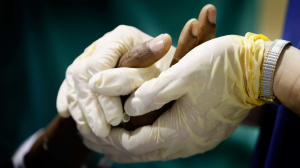Medical students need to learn the potent medicine of empathy
A few years ago at a large teaching hospital in Texas, a medical resident asked a nurse how to order an autopsy for a patient they were currently treating. It was a reasonable request. Autopsies help further the understanding of disease. There was just one problem: their patient, who was very much alive, was lying nearby. He’d overhead the request, and that’s how he found out he was soon going to die.
Articolo di Wolfgang Gilliar su StatNews
This story illustrates a broader crisis in medical education. Today, most schools myopically focus on turning out technicians. Through textbooks, lab experiments, and lectures, budding doctors learn the hard science of medicine. They memorize body parts, processes, and conditions, then dutifully demonstrate their knowledge in high-stake examinations.
This purely technical approach can obscure the human side of medicine and erode empathy — the ability to understand and care about what makes a patient tick. In fact, the empathy levels of medical students actually decline as they progress through school. Many become emotionally disengaged from the people they’re caring for — and that disconnect can impair care.
Forging a strong emotional connection with a patient can be just as important to the healing process as prescribing the right drugs or performing the right surgery. A 2012 study published in the journal Academic Medicine found that the rates of serious complications among diabetic patients were almost 50 percent lower among those whose doctors had high empathy levels compared to those whose doctors had low levels. Improving physician empathy has been shown to help overweight individuals with diabetes drop more weight, arthritis patients experience less joint pain, and those with high blood pressure reduce it.
A 2014 study published in the journal PLoS One examined a baker’s dozen of clinical trials in which doctors were taught empathy-building techniques, even simple ones such as making regular eye contact. Their patients fared significantly better than doctors who didn’t receive such training. continua a leggere




